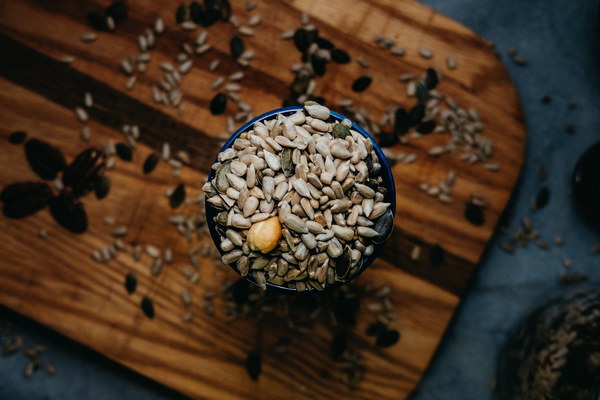Maximizing Heart Health Tips for Body Care When Blood Flow is Optimal
In today's fast-paced world, maintaining optimal heart health is more crucial than ever. When your heart is pumping blood efficiently, it's a sign that your body is in good shape. To ensure that your heart continues to work effectively, it's important to adopt a lifestyle that supports its health. Here are some tips for body care when blood flow is optimal:
1. Eat a Balanced Diet
A balanced diet is essential for maintaining optimal heart health. Incorporate plenty of fruits, vegetables, whole grains, lean proteins, and healthy fats into your meals. This helps to keep your arteries clear and ensures that your body receives all the necessary nutrients.

1. Stay Active
Regular physical activity is one of the best ways to support your heart's health. Aim for at least 150 minutes of moderate aerobic exercise per week, such as brisk walking, cycling, or swimming. Additionally, include strength training exercises twice a week to build muscle and improve your cardiovascular fitness.
2. Manage Stress
Chronic stress can lead to high blood pressure and other heart problems. To manage stress, try relaxation techniques such as deep breathing, meditation, or yoga. These practices can help lower your heart rate and blood pressure, reducing the strain on your cardiovascular system.
3. Maintain a Healthy Weight
Excess weight can put a strain on your heart and blood vessels. To maintain a healthy weight, focus on a combination of diet and exercise. Aim for gradual weight loss, as rapid weight loss can be harmful to your heart.
4. Limit Alcohol and Quit Smoking
Alcohol and tobacco use can damage your heart and blood vessels, leading to increased risk of heart disease and stroke. Limit your alcohol intake to moderate levels and consider quitting smoking if you haven't already.
5. Get Regular Check-ups
Regular health check-ups are crucial for monitoring your heart health. Your doctor can help identify any potential issues early on and recommend appropriate treatments or lifestyle changes.
6. Stay Hydrated
Proper hydration is essential for maintaining blood volume and ensuring that your heart can pump blood efficiently. Aim to drink at least eight glasses of water per day, and adjust your intake based on your activity level and climate.
7. Prioritize Quality Sleep
Quality sleep is vital for overall health, including heart health. Aim for 7-9 hours of quality sleep per night, and establish a bedtime routine that promotes relaxation and helps you fall asleep more easily.
8. Supplement Wisely
While a healthy diet should provide most of the nutrients your body needs, some people may benefit from supplements. Consult with your doctor before starting any new supplement, especially if you have pre-existing health conditions or are taking medication.
9. Practice Mindfulness
Mindfulness practices, such as mindfulness meditation or journaling, can help you stay connected to your body and recognize any signs of stress or discomfort. This can lead to early intervention and better overall heart health.
By following these tips for body care when blood flow is optimal, you can help ensure that your heart remains strong and healthy for years to come. Remember that heart health is a lifelong commitment, and making small, consistent changes can make a significant difference.









